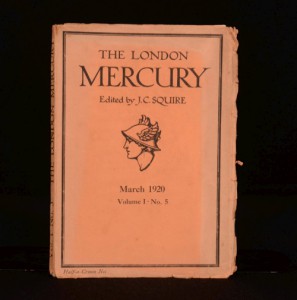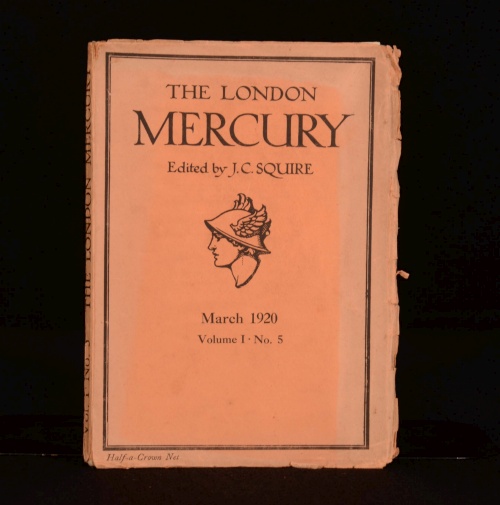 To Charles Augustus Strong
To Charles Augustus Strong
Hotel Marini
Rome. February 20, 1922
Dear Strong,
Thank you for your letter of the 11th. with your article on Schiller-on-Strong on Strong-on-Schiller; also for the London Mercury. I am sorry you have had such a bad cold, and so prolonged: the weather here has continued very bad, and I wonder why I thought Rome a nice place for the winter; but it has proved a nice place in one important respect, as far as I am concerned, that I have managed to keep off the usual winter diseases, and have been well and able to work, although not with any energy. During the last fortnight I have been caught in a tangle, finding that what I thought fresh matter for a chapter or two was nothing but the same old subject, and yet not being clear that it had all been said before, nor able to introduce the new paragraphs into the previous chapters. I am now copying it all off as it stands, and leaving it for a later revision to decide whether it is all a lot of redites or not.
Isn’t something of this sort the trouble in your article too? The effect on me, I might as well confess frankly, is discouraging. It seems like trying to draw on a piece of paper that is worn and dirty with much rubbing out of old lines; the hand is not free, the eye is misled; it is hopeless. Why not take a fresh sheet? Why discuss at all, and why with Schiller? As he shows in your paragraph (4) he is nothing but a squeaking automaton: he will always squeak the same thing, no matter how you tickle him. Let him alone. And all this scholastic language does not serve the only purpose that might justify scholastic language: it does not define nor settle anything; it is all radically infected. For instance, I was seriously puzzled in paragraph (1) by the words “it ‘the datum’ conveys the object only in the form of a ‘meaning.'” I thought for a while that you were calling the essence a “meaning”, as some of our American friends wanted to do: I suppose now that you were simply troubled for lack of proper words in which to express the fact that the datum is not the object. But then how can it “convey” the object? All this needs, I think, to be approached quite differently and to be stated in fresh language. Three or four lines above this passage, I can’t understand how the ego, in your system, is “all experience de-objectified.” That would seem to describe intuitions or mental discourse, the fact that various essences appear in varying combinations: but I understand that your ego is sub-intuitional: how then is it experience at all? I also fail to follow you about the non-existence of meaning psychologically. Is it all behaviour merely? Is there no given essence to mark that behaviour inwardly? Is there no premonition of the object, before the datum is used to describe it, so that we know where that object lies, and that the datum is not all? Cf. the pillar-box.
Yours ever,
G Santayana
From The Letters of George Santayana: Book Three, 1921-1927. Cambridge, MA: The MIT Press, 2002.
Location of manuscript: Rockefeller Archive Center, Sleepy Hollow NY.
